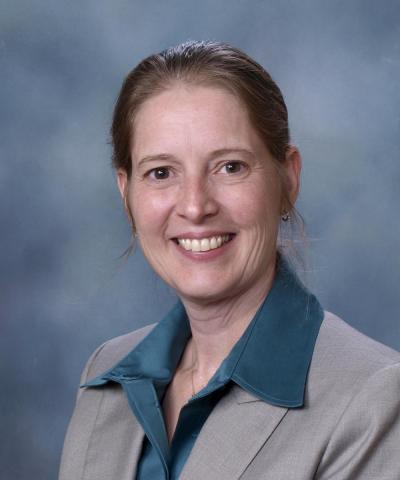
-
In this Issue:
- From the Governor
- The Importance of Developing a Patient Centered End of Life (EOL) Care Plan
- Your Feedback is Requested on Fall 2019 BOG Resolutions
- Announcements

Priya Radhakrishnan, MD, FACP, ACP Governor
From the Governor
Traditionally, summer in Arizona tends to be a bit slower. Here at ACP Arizona, we have a lot going on. Dr. Bijin Thajudeen and the members of the Education Committee have put together an innovative educational schedule of events for our chapter meeting in October. The registration is now open. The program has a rich content and offers something for all the membership.
The Advocacy Committee under the leadership of Dr Rehman has been busy. A letter has been sent by ACP Arizona to the Arizona Medical Board, advocating for change in the licensure language. We have requested to remove language that prevents doctors from seeking counseling and mental health services. The Advocacy Committee at Leadership Day provides an opportunity for ACP and our members to increase our presence in Washington and bring visibility to issues of common concern. The Advocacy Committee continues to work on behalf of the members and values your input. As physicians who practice Internal medicine, it is vital for us to advocate for our profession.
In this newsletter, we focus on Medical Ethics. ACP's new “Toolkit on Issues in Delivering Patient-Centered End-of-Life Care and Responding to a Request for Physician-Assisted Suicide, “ developed for ACP members, includes resources for both physicians and patients.
The Importance of Developing a Patient Centered End of Life (EOL) Care Plan
Arizona Chapter members Dr. Jeanette Booheene, MD, FACP, Dr. Helene Labonte, DO, FACP and Timothy Fagan, MD, FACP have penned their thoughts on End of Life Care.
“People don't care how much you know until they know how much you care” Theodore Roosevelt
Patients are living longer with serious illness. The population over 65 years is expected to increase from 12.6% in 2010 to 19.3% in 2030 and the age group over 80 years increase from 3.7% to 5.1%. 80% of patients say that if seriously ill, they would want to talk to their doctor about wishes for medical treatment toward end of life, but only 18% report having had these conversations. 97% of people say it's important to put their wishes in writing, but only 37% have done so (Kaiser Family Serious Illness in Late Life Survey 2017). 92% of people say that talking with their loved ones about end of life care is important but only 32% have done so (The Conversation Project National Survey 2018).
In 2016, the Arizona Medical Association and the Arizona Osteopathic Medical Association formed a Joint Task Force on End of Life Issues The final report was issued in 2018. My most important take-away is the need for all patients to receive End of Life counseling. According to the survey, physicians counseled 50% of patients when end of life was near, and 37% of all “older” patients.
Hardly a week goes by when we don't hear of a tragic case in our practice or in the media, of someone's loved one experiencing undue suffering during their final days. In spite of all the progress we have made in recent years, teaching clinicians how to approach end of life discussions and encouraging patients to express their goals of care is still woefully inadequate. Reasons for this include lack of clinician time, competing priorities, patient fear and denial, fear of upsetting family members, and fear of losing hope.
The first step in developing a good patient centered end of life (EOL) care plan is starting the conversation early with patients with serious illness about their goals, which is essentially having a good advance care planning discussion. There is evidence that early discussions between healthcare providers, patients and their families/caregivers, about goals of care and end of life wishes, result in a better quality of life, improvement in care consistent with the patient's goals, decreased utilization of non-beneficial medical interventions at the end of life, positive family outcomes and overall reduced healthcare cost. Patients who engage in advance care planning are more likely to have their wishes known by their healthcare providers and families/caregivers and ultimately have these wishes honored.
The quality and timing of these conversations (not a single conversation, usually multiple, over a period of time) is crucial to the desired patient outcomes. In the current state, these conversations are happening too late and often in the acute care setting by healthcare providers who have little knowledge of the patient as a person. Contrary to the commonly held belief among healthcare providers, having these conversations early with patients, does not result in increased patient distress or loss of hope.
We need to encourage patients and their families (and our families) to engage in these discussions before a life threatening event occurs. And when an event does occur we need to understand what's important to each patient, how they define quality of life, what challenges and degree of suffering they consider acceptable, as well as what factors might lead to a change to comfort measures.. The only way to achieve this is through open and honest communication and yes, communication takes time. This ACP Toolkit provides resources for patient education and support and guidance for clinicians on advance care planning and team-based care at the end of life. We still have a long way to go, but this toolkit will be a valuable resource as we move forward.
Traditional Medicare pays for end of life counseling as often as necessary under CPT codes 99497 and 99498, but most physicians have never used these codes. Medicare Advantage Plans (“Disadvantage” in my opinion) and most commercial insurance, pay for end of life counseling under some circumstances. Patients most likely to be near end of life without advance directives, designated health care proxy, and other affairs in order, are younger patients, and those who have been healthy.
Patients and their doctors have a relationship based on trust, with patients having the expectation that their doctor who knows them well will tell them the truth about their illness, listen to their needs and guide them in achieving the best outcomes consistent with their goals.
One size does not fit all and we must be prepared to have these conversations with patients of all ages, with serious illness and always remember to be sensitive to and accommodate cultural variations.

Dr. Booheene is Medical Director Palliative Care, Honor Health Scottsdale Osborn Medical Center.

Dr. Labonte is Assistant Professor of Medicine for Mayo Clinic Alix School of Medicine and serves as the Chair of the Division of Community Internal Medicine at Mayo Clinic in Arizona.

Dr. Fagan is Professor Emeritus of Internal Medicine, University of Arizona, Phoenix and remains active in the American College of Physicians, Pima County Medical Society, and Arizona Medical Association, including as an Alternate Delegate to the American Medical Association.
Your Feedback is Requested on Fall 2019 BOG Resolutions
The ACP Arizona Chapter requests your feedback on the 15 resolutions that will be heard at the Fall 2019 Board of Governors Meeting. The resolutions have been posted on ACP Online for your review.
After considering the intent of each resolution and how it fits with the College's Mission and Goals, please provide your feedback on each resolution and indicate your support or opposition by completing the electronic response form by Monday, September 9. Your input will be used as part of testimony on behalf of the chapter.
Thank you for taking time out of your busy schedule to provide comments regarding these resolutions. By providing your feedback on the Board of Governors resolutions, you have helped to shape College policy that impacts the practice of internal medicine. Please visit the chapter's Web site after the Fall 2019 Board of Governors meeting for updates.
(NOTE: Proposed resolutions should be considered confidential information and are intended to be viewed by ACP members only. Under no circumstances should proposed resolutions be shared with the news media or social networking media, nor should they be shared with other individuals and organizations. Proposed resolutions do not represent ACP policy.)

Announcements
- ACP has partnered with Core IM to offer a new CME-eligible podcast series featuring clinically relevant and internal medicine-specific information for physicians of all levels and backgrounds. Core IM features four categories of podcasts: Pearls, Hoofbeats, Mind the Gap and At the Bedside.
- ABIM has launched their annual call for governance nominations, including the Board of Directors, Council, Specialty Boards, and Exam Committees, as well as newer initiatives such as the Knowledge Check-In Item-Writing Task Force. The positions are outlined on the ABIM website. Please consider these positions and distribute this broadly to others.
- Our Arizona chapter is seeking members for the following committees: Membership; Advocacy
Notify Executive Director Debbie Webber, CAE, at dwebber@azmed.org if you are interested in getting involved as a committee member.
- Don't forget to nominate a colleague or resident for an award – it's easy – contact Debbie Webber at dwebber@azmed.org for details.
- If you have any great professional news with us and the chapter- send us the message!
As always, please reach out to me if you would like to bring up any issues that you would like the chapter to work on.
Don't miss the ACP Arizona 2019 Chapter Meeting!
October 18-19, 2019
DoubleTree by Hilton Tucson – Reid Park

